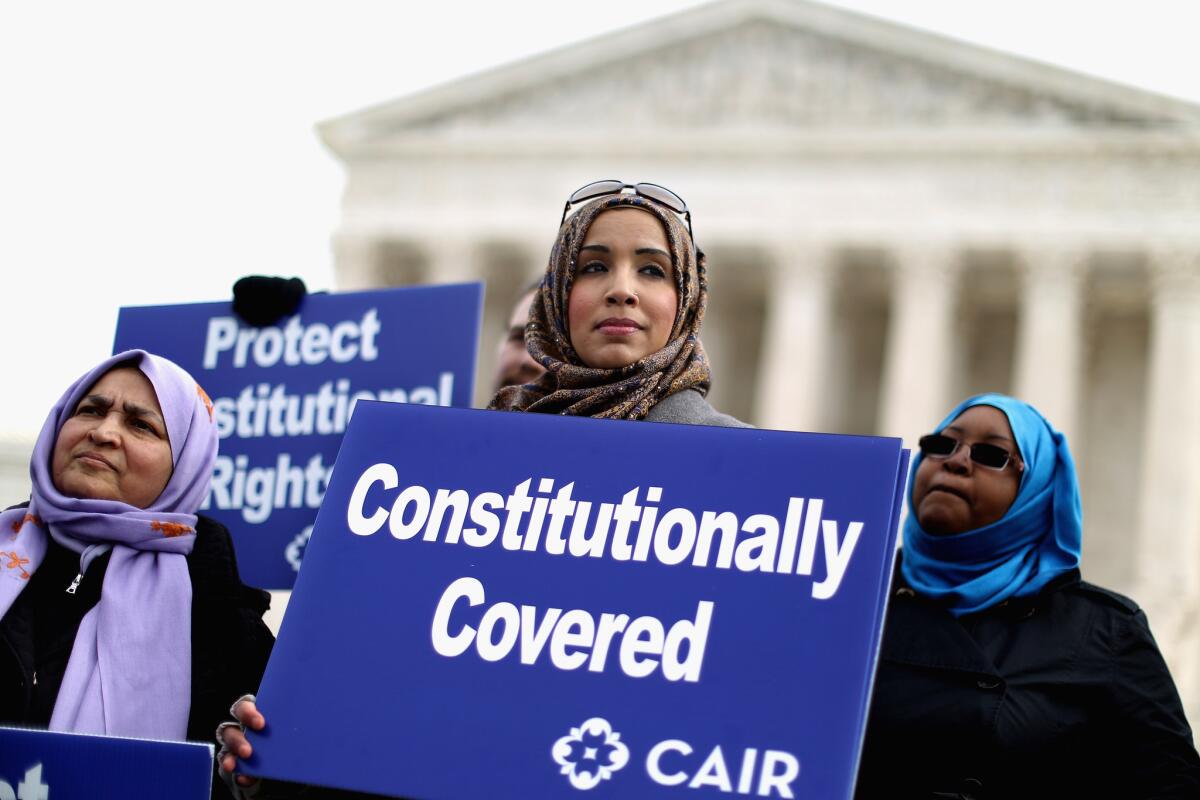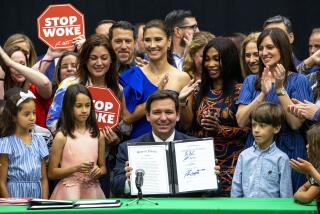Editorial: Religion, the workplace and the Supreme Court

The federal Civil Rights Act bans discrimination in employment on the basis of religion, but it does more than that: Under the law, a company must accommodate the religious practices of workers unless doing so imposes an undue hardship on the conduct of its business. This week, the Supreme Court heard a case that could significantly strengthen that protection.
In 2008, 17-year-old Samantha Elauf applied for a job at an Abercrombie & Fitch outlet in Tulsa. She was rejected after appearing at an interview wearing a modified black hijab that she regards as a “symbol of modesty in my Muslim faith.” The head covering was viewed as incompatible with the “classic East Coast collegiate” look the retailer seeks to impose on its employees.
On Wednesday, the Supreme Court was asked to right that wrong. In doing so, the court must make it clear to all employers that they need to explore with prospective employees whether they might find it difficult to comply with company policies — and how such conflicts might be resolved.
Abercrombie & Fitch insists that it is willing to accommodate employees’ religious preferences and in fact “has granted numerous religious accommodations when requested, including hijabs.” But its lawyer argued — and an appeals court agreed — that a job applicant must volunteer the information that there might be a conflict between company policy and her religion.
It isn’t enough, according to the company, that an interviewer suspects that an applicant might need a religious accommodation. (The manager who interviewed Elauf testified that she assumed Elauf wore a scarf because she was a Muslim.) The employer must have “actual knowledge” of a religious conflict.
The lawyer for Abercrombie & Fitch told the court that placing the burden on the applicant to raise the issue of religion would avoid situations in which employers might “stereotype and intrusively probe applicants’ religious beliefs.” It’s understandable that an interviewer might not want to raise the issue. But, as Justice Elena Kagan observed, such an “awkward conversation” is preferable to a situation in which an applicant is denied a job, as Elauf was, merely because of her religion.
Both Congress and the Constitution have provided protection for religious freedom far beyond what is offered in many other societies. But it is the Supreme Court that has given practical content to those guarantees. A ruling for Samantha Elauf would be in that tradition.
Follow the Opinion section on Twitter @latimesopinion and Facebook
More to Read
A cure for the common opinion
Get thought-provoking perspectives with our weekly newsletter.
You may occasionally receive promotional content from the Los Angeles Times.






